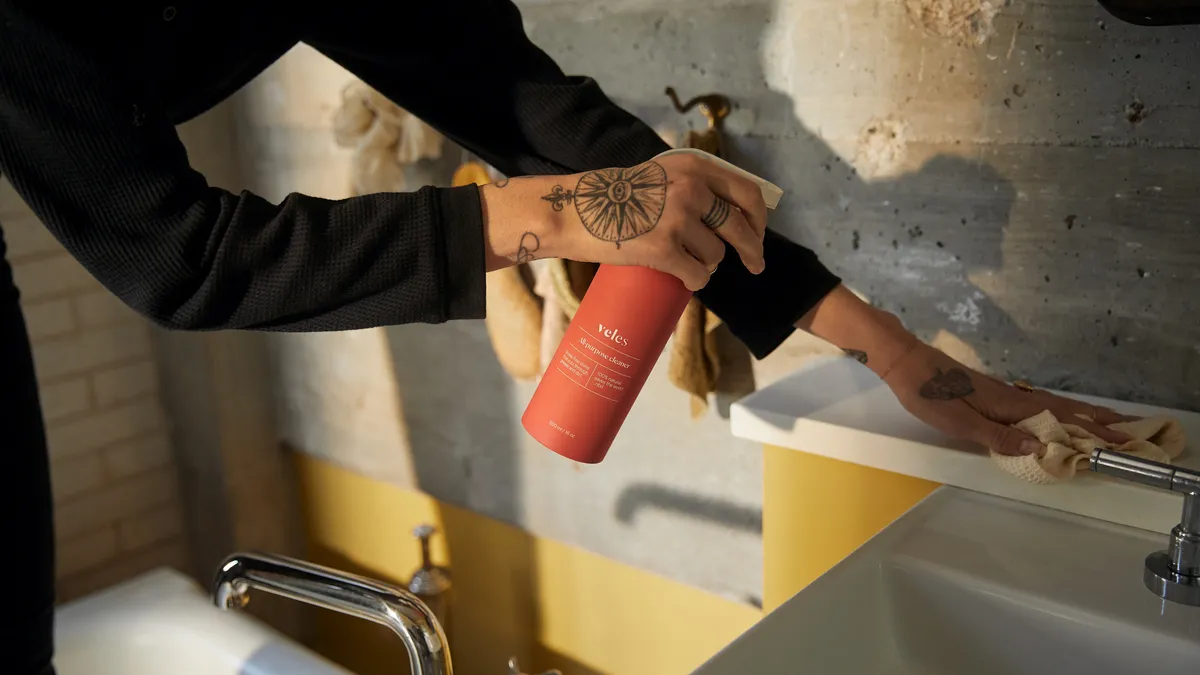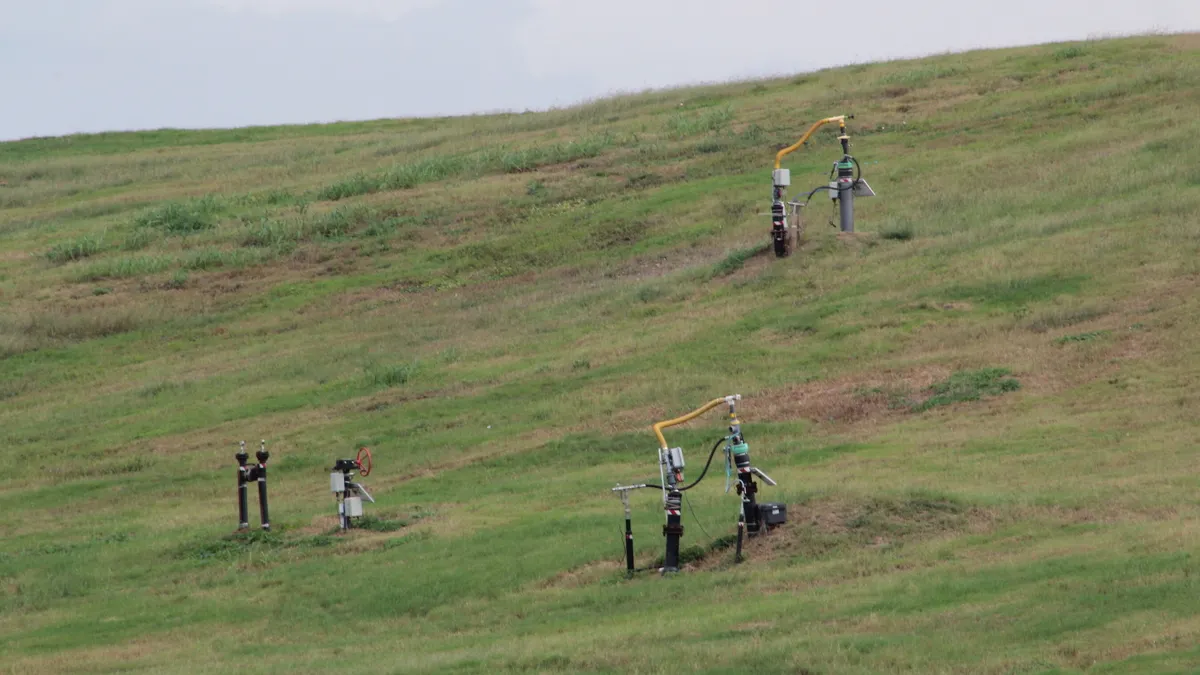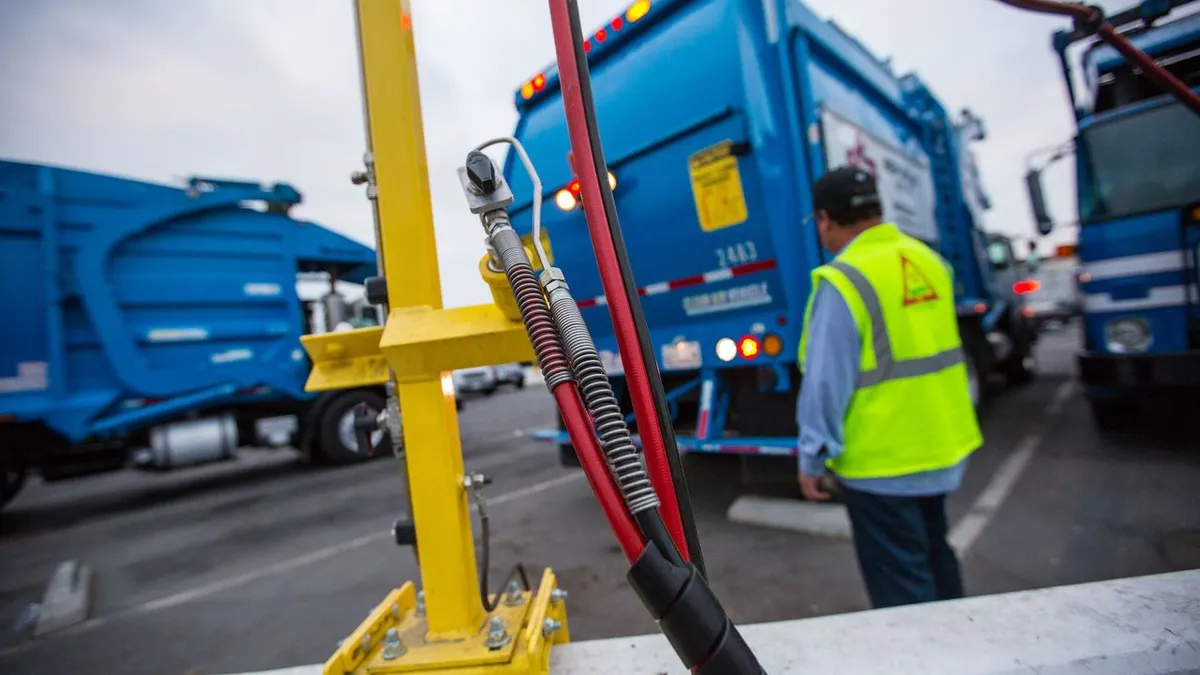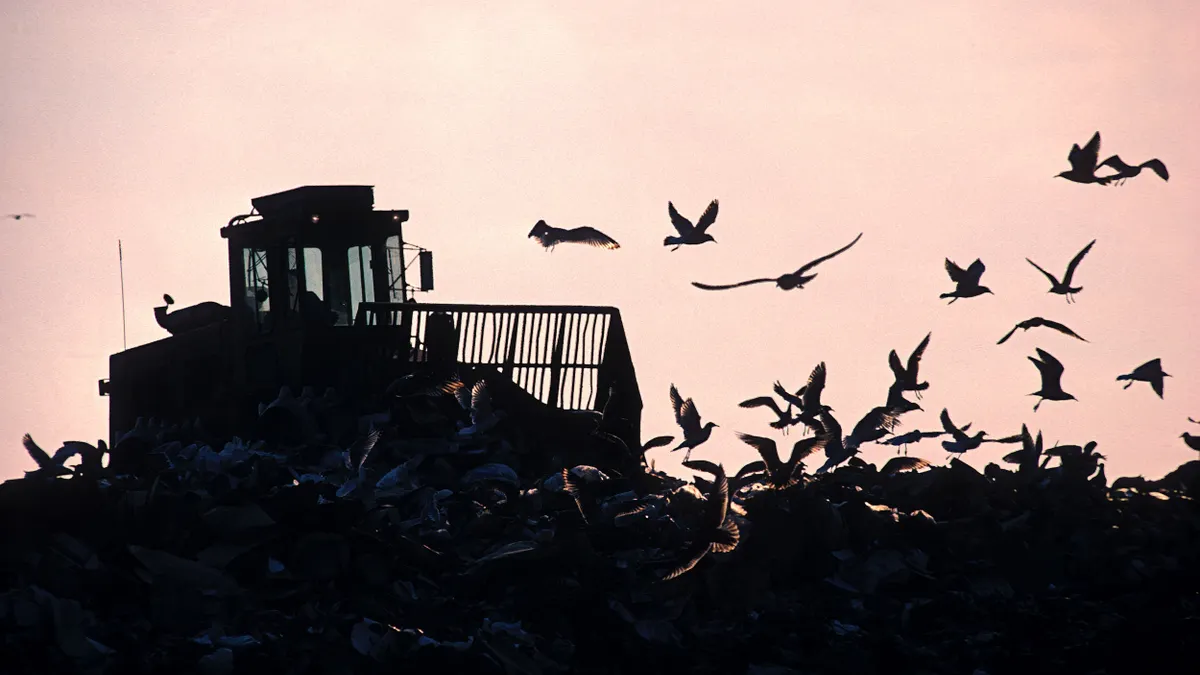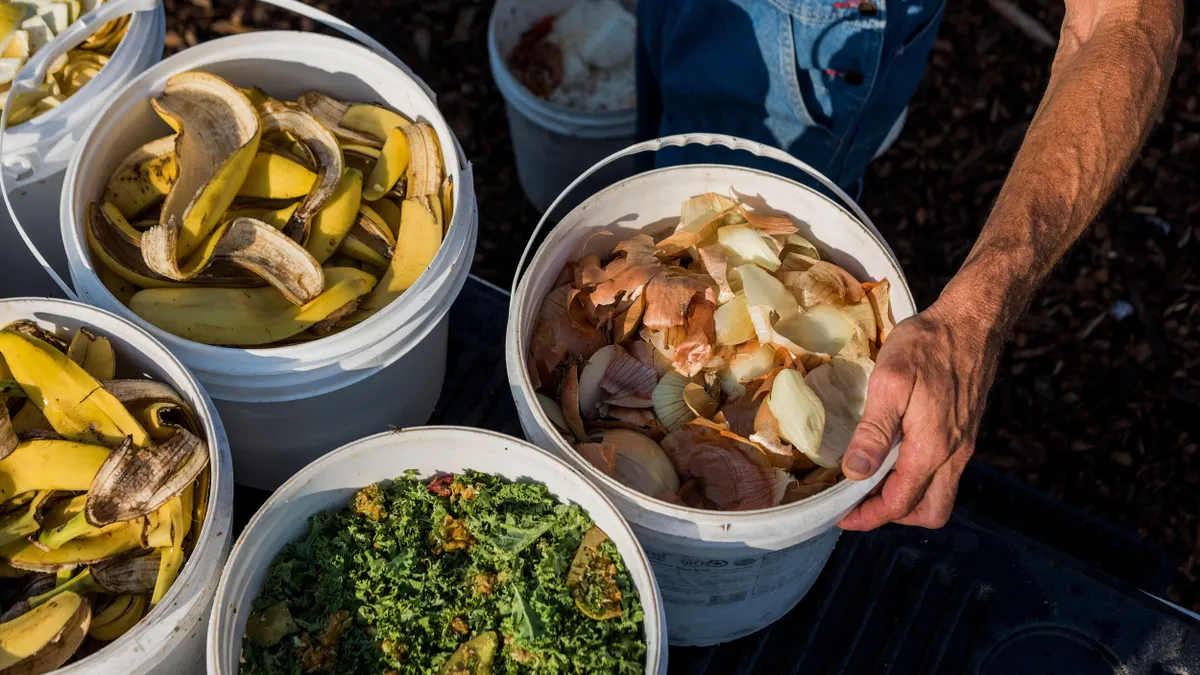The recent launch of a food waste-based household cleaning spray may mark the beginning of a new phase for Ambrosia, its New York-based manufacturer, but also a unique approach to organics recycling.
Veles, touted as "100%" natural, comes in a refillable aluminum bottle and is available online before a future retail launch. Ambrosia is currently making the product at a demonstration facility in Newark, New Jersey, which accepts up to three tons of food waste per delivery (usually every other week) and works to "valorize every output" of the process. The company's goal is to launch a site in New York next year that could handle upward of 150 tons per day, with the potential for more sites in other cities.
As Ambrosia scales up its processing capabilities, the company also envisions growing a parallel business line focused on creating chemicals and ingredients from the material it takes in. CEO Amanda Weeks has dreams of becoming "DuPont for the circular economy," providing a holistic solution to the organic waste challenge.
“In order to provide a sustainable organics solution, you need to diversify what you’re doing with it," she told Waste Dive.
The concept has caught the attention of the broader organics recycling community in the region, as it presents a new alternative to traditional processing options.
“What they’re doing is really exciting, marrying technology solutions to organics recycling in order to create products and jobs in a green and sustainable manner," said Matthew Karmel, an attorney at the firm Riker Danzig and board member of the New Jersey Composting Council. “There is a strong need to have these kinds of projects in urban environments."
Ambrosia (formerly known as Industrial/Organic, and originally Responcycle) launched in 2014 amid a period of rising interest in food waste around New York. Weeks, who grew up near the infamous Fresh Kills Landfill on Staten Island, saw the growing need for processing solutions as the city began requiring large commercial generators to separate their material.
Her initial concept, developed with co-founder Brett Van Aalsburg, was to focus more so on scaling an anaerobic fermentation technology that could be set up within an existing warehouse rather than the dual approach of also making products. Potential sales of plant food pellets and non-potable water were part of the initial plan, but not at the scale Ambrosia is now pursuing with product development.
Funding hasn't always been easy (at one point the team applied for a business incubator competition that would have moved them to Buffalo), but the project has started to gain momentum. Following a $1.3 million seed round in 2017, the company launched its Newark facility late that year and then raised another $4.2 million in 2018.
Ambrosia's concept is seen as avoiding the potential pitfalls of other organics processing technologies. Weeks noted how compost demand can be limited and seasonal, and how biogas from anaerobic digestion is often competing against cheap natural gas.
“You’re playing in this space where it’s low value and unpredictable," she said, "and so we’re trying to look at higher value markets in the consumer world where there are shorter sales cycles."
While recent investment interest in the composting and anaerobic digestion world show the models are still considered viable enterprises, it's also easy for any organics recycling professional to rattle off a list of failed projects from recent years.
Weeks said she's currently working to model out a plan where Ambrosia's tip fee revenue can cover payback terms for debt financing on its own, with revenues from Veles and other future products handled in parallel. As New York's Department of Sanitation works to implement its third wave of commercial organics diversion requirements – with further expansion right around the corner under an expected waste zone system – local demand is only expected to increase.
In the meantime, the city already has businesses willing to pay what it takes to keep their excess food from landfills and incinerators regardless of the regulatory landscape. For those types of businesses, the idea of using or selling products made from their own waste could make Ambrosia's concept more appealing, according to Recycle Track Systems (RTS) Sustainability Manager Shannon Bergstrom.
“We can kind of help our clients enter the circular economy with this product," said Bergstrom, whose company currently directs a steady portion of the material collected from its New York customers to Ambrosia. Bergstrom said pilots are underway with some clients using Veles for their cleaning needs, adding that “as they grow, we’re definitely going to want to scale with them."
While processing infrastructure has expanded in the region to the point that RTS is less likely to send organics to facilities outside of the metro area now than it once was, Bergstrom still sees a rising need for more capacity. Ambrosia's local position, and unique product, will likely be a selling point.
If Ambrosia's goal of a full-size processing facility in Brooklyn does finally come to fruition next year (likely starting around 10 tons per day and scaling up to 150 tons), Weeks envisions growing more quickly after that. If the first site is successful, she could see funding five more like it at one time. The early list of potential locations includes cities with "zero waste" or high diversion rate targets such as Austin, Phoenix, Boston and Los Angeles. No formal agreements are in place with any cities at this time.
While that part of the business is expected to be foundational, Weeks believes the manufacturing side is what will make Ambrosia stand out long-term as it launches many more food waste-derived concepts beyond the cleaning spray. Partnerships and consulting arrangements are being considered in a variety of capacities, as many major consumer packaged goods companies look for ways to improve their sustainability profiles.
“The average person is now very aware of food waste and the stats around it and the impact of it, and then that drives everything," she said. "Being able to partner with these large corporations is only now going to be possible because it’s marketable."



